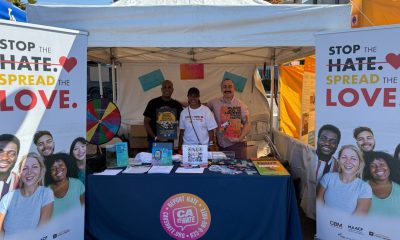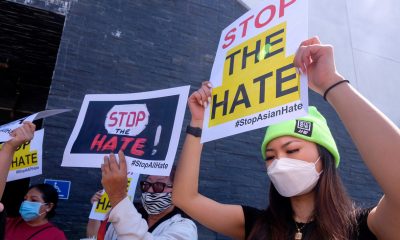National
White US Gunman Caught in Killing of 9 in Black Church
JEFFREY COLLINS, Associated Press
RUSS BYNUM, Associated Press
CHARLESTON, South Carolina (AP) — A white man who joined a prayer meeting inside a historic black church and then fatally shot nine people was captured without resistance Thursday after an all-night manhunt, Charleston’s police chief said.
Dylann Storm Roof, 21, spent nearly an hour inside the church Wednesday night before killing six women and three men, including the pastor. A citizen spotted his car in North Carolina and tipped police, Chief Greg Mullen said.
The chief wouldn’t discuss a motive. Charleston Mayor Joseph P. Riley Jr. called it “pure, pure concentrated evil.” Stunned community leaders and politicians condemned the attack on The Emanuel African Methodist Episcopal Church, and Attorney General Loretta Lynch said the Justice Department has begun a hate crime investigation.
President Barack Obama, who personally knew the slain pastor, state Sen. Clementa Pinckney, said these shootings have to stop.
“At some point, we as a country will have to reckon with the fact that this type of mass violence does not happen in other advanced countries,” Obama said.
Pinckney, 41, was a married father of two who became the youngest member of the South Carolina state House when he was elected as a Democrat at 23.
“He never had anything bad to say about anybody, even when I thought he should,” State House Minority leader Todd Rutherford told The Associated Press. “He was always out doing work either for his parishioners or his constituents. He touched everybody.”
Roof’s childhood friend, Joey Meek, alerted the FBI after recognizing him in a surveillance camera image, said Meek’s mother, Kimberly Konzny. Roof had worn the same sweatshirt while playing Xbox videogames in their home recently.
“I don’t know what was going through his head,” Konzny said. “He was a really sweet kid. He was quiet. He only had a few friends.”
Roof had been to jail: State court records show a pending felony drug case against him, and a past misdemeanor trespassing charge.
He also displayed the flags of defeated white-ruled regimes: a Confederate flag was on his license plate, Konzny said, and a photo on his Facebook page shows him wearing a jacket with stitched-on flag patches from Rhodesia and apartheid-era South Africa.
The shooting evoked painful memories of other attacks. Black churches were bombed in the 1960s when they served as organizing hubs for the Civil Rights movement, and burned by arsons across the South in the 1990s. Others survived shooting sprees.
This particular congregation, which formed in 1816, has its own grim history: A founder, Denmark Vesey, was hanged after trying to organize a slave revolt in 1822, and white landowners burned the church in revenge, leaving parishioners to worship underground until after the Civil War.
This shooting “should be a warning to us all that we do have a problem in our society,” said state Rep. Wendell Gilliard, a Democrat whose district includes the church. “There’s a race problem in our country. There’s a gun problem in our country. We need to act on them quickly.”
“Of all cities, in Charleston, to have a horrible hateful person go into the church and kill people there to pray and worship with each other is something that is beyond any comprehension and is not explained,” Riley said. “We are going to put our arms around that church and that church family.”
NAACP President and CEO Cornell William Brooks said “there is no greater coward than a criminal who enters a house of God and slaughters innocent people.”
A few bouquets of flowers tied to a police barricade outside the church formed a small but growing memorial.
The attack came two months after the fatal shooting of an unarmed black man, Walter Scott, by a white police officer in neighboring North Charleston that sparked major protests and highlighted racial tensions in the area. The officer awaits trial for murder, and the shooting prompted South Carolina lawmakers to push through a bill helping all police agencies in the state get body cameras. Pinckney was a sponsor of that bill.
“I am very tired of people telling me that I don’t have the right to be angry,” Community organizer Christopher Cason said. “I am very angry right now.”
___
Contributors include Alex Sanz, Meg Kinnard and David Goldman in Charleston, South Carolina; Eric Tucker in Washington and Jacob Jordan in Atlanta.
—
This story has been corrected to show Roof’s friend’s mother’s surname is Konzny, not Kozny.
Copyright 2015 The Associated Press. All rights reserved. This material may not be published, broadcast, rewritten or redistributed.
Activism
‘Donald Trump Is Not a God:’ Rep. Bennie Thompson Blasts Trump’s Call to Jail Him
“Donald Trump is not a god,” U.S. Rep. Bennie Thompson, D-Miss., told The Grio during a recent interview, reacting to Trump’s unsupported claims that the congressman, along with other committee members like vice chair and former Republican Rep. Liz Cheney, destroyed evidence throughout the investigation.
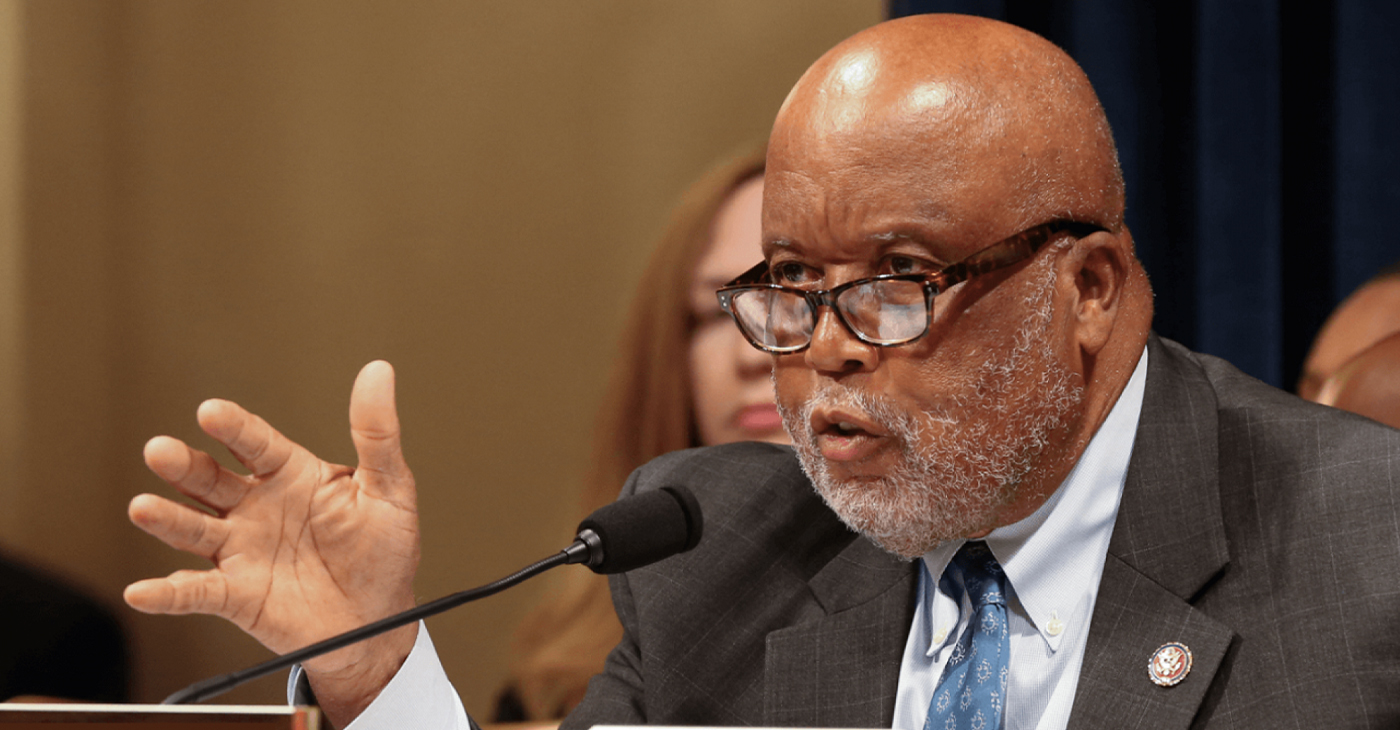
By Post Staff
U.S. Rep. Bennie Thompson, D-Miss., said he not intimidated by President-elect Donald Trump, who, during an interview on “Meet the Press,” called for the congressman to be jailed for his role as chairman of the special congressional committee investigating Trump’s role in the Jan. 6, 2021, mob attack on the U.S. Capitol.
“Donald Trump is not a god,” Thompson told The Grio during a recent interview, reacting to Trump’s unsupported claims that the congressman, along with other committee members like vice chair and former Republican Rep. Liz Cheney, destroyed evidence throughout the investigation.
“He can’t prove it, nor has there been any other proof offered, which tells me that he really doesn’t know what he’s talking about,” said the 76-year-old lawmaker, who maintained that he and the bipartisan Jan. 6 Select Committee – which referred Trump for criminal prosecution – were exercising their constitutional and legislative duties.
“When someone disagrees with you, that doesn’t make it illegal; that doesn’t even make it wrong,” Thompson said, “The greatness of this country is that everyone can have their own opinion about any subject, and so for an incoming president who disagrees with the work of Congress to say ‘because I disagree, I want them jailed,’ is absolutely unbelievable.”
When asked by The Grio if he is concerned about his physical safety amid continued public ridicule from Trump, whose supporters have already proven to be violent, Thompson said, “I think every member of Congress here has to have some degree of concern, because you just never know.”
This story is based on a report from The Grio.
Activism
Biden’s Legacy Secured with Record-Setting Black Judicial Appointments
His record surpasses previous efforts by his predecessors. President Jimmy Carter appointed 37 Black judges, including seven Black women. In stark contrast, Donald Trump’s first term resulted in only two Black women appointed out of 234 lifetime judicial nominations. The White House said Biden’s efforts show a broader commitment to racial equity and justice.
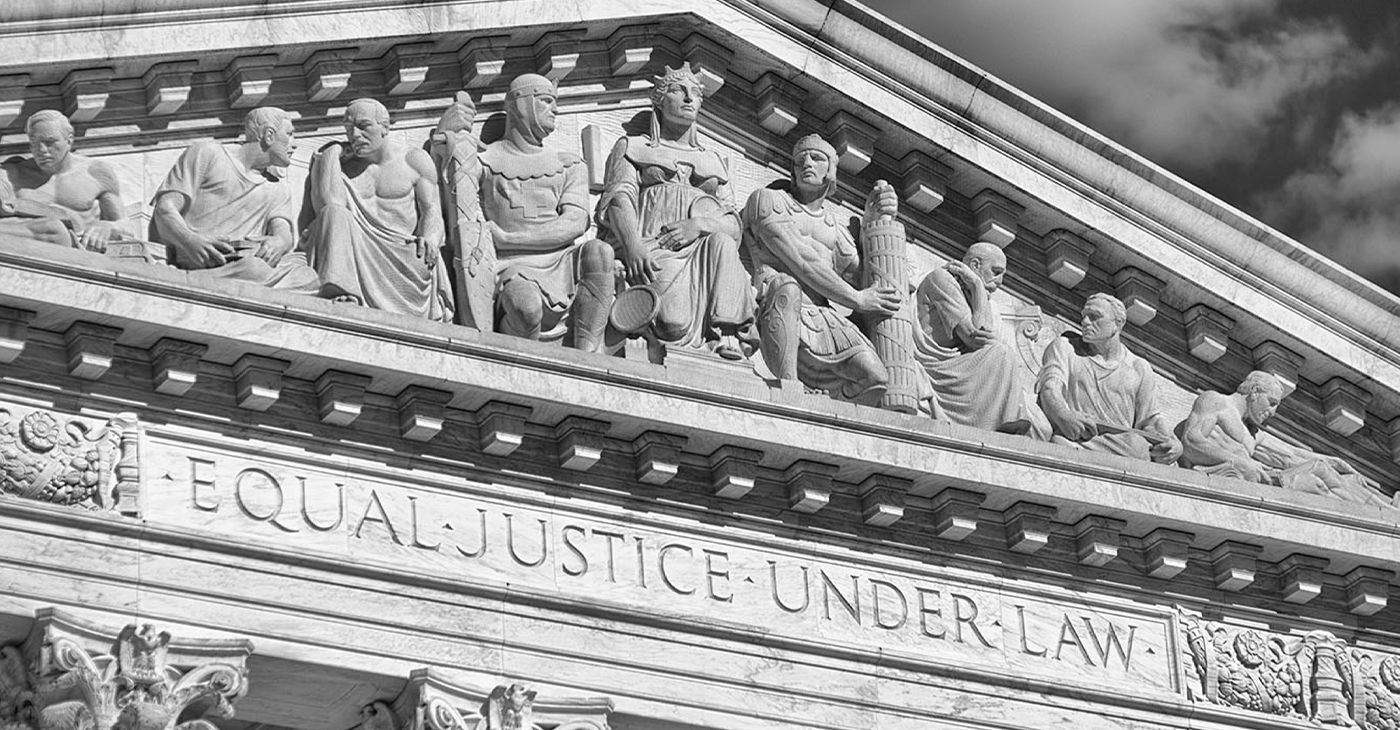
By Stacy M. Brown
WI Senior Writer
President Joe Biden’s commitment to diversifying the federal judiciary has culminated in a historic achievement: appointing 40 Black women to lifetime judgeships, the most of any president in U.S. history.
Biden has appointed 62 Black judges, cementing his presidency as one focused on promoting equity and representation on the federal bench.
His record surpasses previous efforts by his predecessors. President Jimmy Carter appointed 37 Black judges, including seven Black women. In stark contrast, Donald Trump’s first term resulted in only two Black women appointed out of 234 lifetime judicial nominations.
The White House said Biden’s efforts show a broader commitment to racial equity and justice.
Meanwhile, Trump has vowed to dismantle key civil rights protections, including the Justice Department’s Civil Rights Division.
“Having the Black woman’s experience on the federal bench is extremely important because there is a different kind of voice that can come from the Black female from the bench,” Delores Jones-Brown, professor emeritus at John Jay College of Criminal Justice, told reporters.
Lena Zwarensteyn of the Leadership Conference on Civil and Human Rights told reporters that these district court judges are often the first and sometimes the final arbiters in cases affecting healthcare access, education equity, fair hiring practices, and voting rights.
“Those decisions are often the very final decisions because very few cases actually get heard by the U.S. Supreme Court,” Zwarensteyn explained.
Biden’s nomination of Justice Ketanji Brown Jackson to the Supreme Court further reflects his commitment to judicial diversity. Jackson became the first Black woman to serve on the nation’s highest court.
Patrick McNeil, spokesperson for the Leadership Conference, pointed out that over half of Biden’s Black female judicial appointees have backgrounds as civil rights attorneys and public defenders, experience advocates consider essential for a balanced judiciary.
Meanwhile, Congress remains divided over the expansion of federal judgeships. Legislation to add 66 new judgeships—approved unanimously by the Senate in August—stalled in the GOP-controlled House until after the election. House Republicans proposed distributing the new judgeships over the next decade, giving three administrations a say in appointments. President Biden, however, signaled he would veto the bill if it reached his desk.
Rep. Jerry Nadler, D-N.Y., argued the delay was a strategic move to benefit Trump’s potential return to office. “Donald Trump has made clear that he intends to expand the power of the presidency and giving him 25 new judges to appoint gives him one more tool at his disposal,” Nadler said.
#NNPA BlackPress
California, Districts Try to Recruit and Retain Black Teachers; Advocates Say More Should Be Done
SACRAMENTO OBSERVER — Many Black college students have not considered a teaching career because they have never had a Black teacher, said Preston Jackson, who teaches physical education at California Middle School in Sacramento. Those who consider a teaching career are often deterred by the cost of teacher preparation, taking required tests and unpaid student teaching.
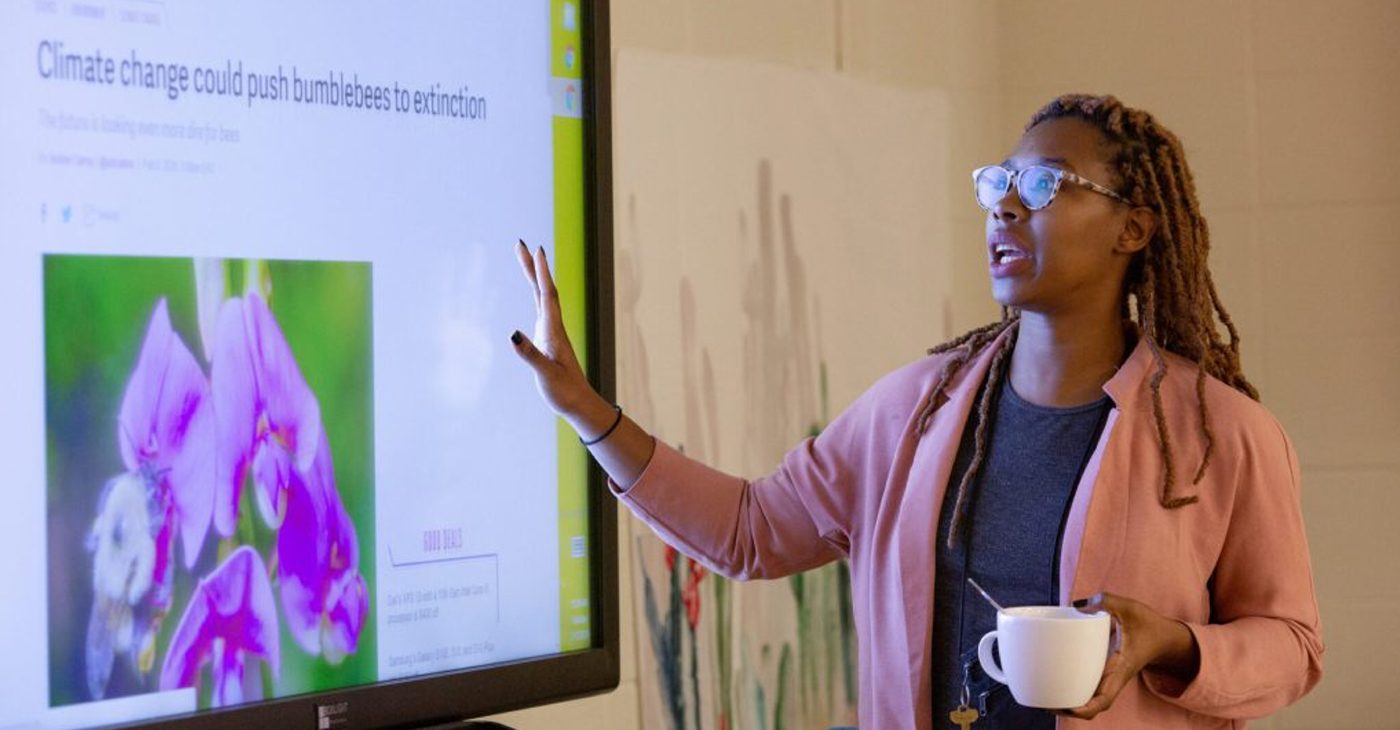
A Series by EdSource | The Sacramento Observer
Recruiting and retaining Black teachers has taken on new urgency in recent years as California lawmakers try to ease the state’s teacher shortage. The state and individual school districts have launched initiatives to recruit teachers of color, but educators and advocates say more needs to be done.
Hiring a diverse group of teachers helps all students, but the impact is particularly significant for students of color, who then score higher on tests and are more likely to graduate from college, according to the Learning Policy Institute. A recently released report also found that Black boys are less likely to be identified for special education when they have a Black teacher.
In the last five years, state lawmakers have made earning a credential easier and more affordable and have offered incentives for school staff to become teachers — all moves meant to ease the teacher shortage and help to diversify the educator workforce.
Despite efforts by the state and school districts, the number of Black teachers doesn’t seem to be increasing. Black teachers say that to keep them in the classroom, teacher preparation must be more affordable, pay and benefits increased, and more done to ensure they are treated with respect, supported and given opportunities to lead.
“Black educators specifically said that they felt like they were being pushed out of the state of California,” said Jalisa Evans, chief executive director of the Black Educator Advocates Network of a recent survey of Black teachers. “When we look at the future of Black educators for the state, it can go either way, because what Black educators are feeling right now is that they’re not welcome.”
Task force offers recommendations
State Superintendent of Public Instruction Tony Thurmond called diversifying the teacher workforce a priority and established the California Department of Education Educator Diversity Advisory Group in 2021.
The advisory group has made several recommendations, including beginning a public relations campaign and offering sustained funding to recruit and retain teachers of color, and providing guidance and accountability to school districts on the matter. The group also wants universities, community groups and school districts to enter into partnerships to build pathways for teachers of color.
Since then, California has created a set of public service announcements and a video to help recruit teachers and has invested $10 million to help people of color to become school administrators, said Travis Bristol, chairman of the advisory group and an associate professor of education at UC Berkeley. Staff from county offices of education also have been meeting to share ideas on how they can support districts’ efforts to recruit and retain teachers of color, he said.
The state also has invested more than $350 million over the past six years to fund teacher residency programs, and recently passed legislation to ensure residents are paid a minimum salary. Residents work alongside an experienced teacher-mentor for a year of clinical training while completing coursework in a university preparation program — a time commitment that often precludes them from taking a job.
Legislators have also proposed a bill that would require that student teachers be paid. Completing the 600 hours of unpaid student teaching required by the state, while paying for tuition, books, supplies and living expenses, is a challenge for many Black teacher candidates.
Black teacher candidates typically take on much more student debt than their white counterparts, in part, because of the large racial wealth gap in the United States. A 2019 study by the Economic Policy Institute showed that the median white family had $184,000 in family wealth (property and cash), while the median Latino family had $38,000 and the median Black family had $23,000.
Lack of data makes it difficult to know what is working
It’s difficult to know if state efforts are working. California hasn’t released any data on teacher demographics since the 2018-19 school year, although the data is submitted annually by school districts. The California Department of Education (CDE) did not provide updated data or interviews requested by EdSource for this story.
The most recent data from CDE shows the number of Black teachers in California declined from 4.2% in 2009 to 3.9% during the 2018-19 school year. The National Center for Education Statistics data from the 2020-21 show that Black teachers made up 3.8% of the state educator workforce.
Having current data is a critical first step to understanding the problem and addressing it, said Mayra Lara, director of Southern California partnerships and engagement at The Education Trust-West, an education research and advocacy organization.
“Let’s be clear: The California Department of Education needs to annually publish educator demographic and experience data,” Lara said. “It has failed to do so for the past four years. … Without this data, families, communities and decision-makers really are in the dark when it comes to the diversity of the educator workforce.”
LA Unified losing Black teachers despite efforts
While most state programs focus on recruiting and retaining all teachers of color, some California school districts have initiatives focused solely on recruiting Black teachers.
The state’s largest school district, Los Angeles Unified, passed the Black Student Excellence through Educator Diversity, Preparation and Retention resolution two years ago. It required district staff to develop a strategic plan to ensure schools have Black teachers, administrators and mental health workers, and to advocate for programs that offer pathways for Black people to become teachers.
When the resolution was passed, in February 2022, Los Angeles Unified had 1,889 Black teachers — 9% of its teacher workforce. The following school year, that number declined to 1,823 or 7.9% of district teachers. The number of Black teachers in the district has gone down each year since 2016. The district did not provide data for the current school year.
Robert Whitman, director of the Educational Transformation Office at LA Unified, attributed the decrease, in part, to the difficulty attracting teachers to the district, primarily because of the area’s high cost of living.
“Those who are coming out of colleges now, in some cases, we find that they can make more money doing other things,” Whitman said. “And so, they may not necessarily see education as the most viable option.”
The underrepresentation of people of color prompted the district to create its own in-house credentialing program, approved by the California Commission on Teacher Credentialing, Whitman said. The program allows classified staff, such as substitute teachers, paraprofessionals, administrative assistants and bus drivers, to become credentialed teachers while earning a salary and benefits at their original jobs.
Grow-your-own programs such as this, and the state’s Classified School Employee Credentialing program, and a soon-to-be launched apprenticeship program, are meant to diversify the educator workforce because school staff recruited from the community more closely match the demographics of the student body than traditionally trained and recruited teachers, according to research.
Los Angeles Unified has other initiatives to increase the number of Black educators in the district, Whitman said, including working with universities and colleges to bring Black teachers, counselors and psychiatric social workers to their campuses. The district also has programs that help school workers earn a credential for free, and channels employees completing a bachelor’s degree toward the district’s teacher preparation program where they can begin teaching while earning their credential.
All new teachers at Los Angeles Unified are supported by mentors and affinity groups, which have been well received by Black teachers, who credit them with inspiring and helping them to see themselves as leaders in the district, Whitman said.
Oakland has more Black teachers than students
Recruiting and retaining Black teachers is an important part of the Oakland Unified three-year strategic plan, said Sarah Glasband, director of recruitment and retention for the district. To achieve its goals, the district has launched several partnerships that make an apprenticeship program, and a residency program that includes a housing subsidy, possible. A partnership with the Black Teacher Project, a nonprofit advocacy organization, offers affinity groups, workshops and seminars to support the district’s Black teachers.
The district also has a Classified School Employee Program funded by the state and a new high school program to train future teachers. District pathway programs have an average attrition rate of less than 10%, Glasband said.
This year, 21.3% of the district’s K-12 teachers are Black, compared with 20.3% of their student population, according to district data. Oakland Unified had a retention rate of about 85% for Black teachers between 2019 and 2023.
Better pay, a path to leadership will help teachers stay
Black teachers interviewed by EdSource and researchers say that to keep them in the classroom, more needs to be done to make teacher preparation affordable, improve pay and benefits, and ensure they are treated with respect, supported and given opportunities to lead.
The Black Educator Advocates Network came up with five recommendations after surveying 128 former and current Black teachers in California about what it would take to keep them in the classroom:
- Hire more Black educators and staff
- Build an anti-racist, culturally responsive and inclusive school environment
- Create safe spaces for Black educators and students to come together
- Provide and require culturally responsive training for all staff
- Recognize, provide leadership opportunities and include Black educators in decision making
Teachers interviewed by EdSource said paying teachers more also would make it easier for them to stay.
“I don’t want to say that it’s the pay that’s going to get more Black teachers,” Brooke Sims, a Stockton teacher, told EdSource. “But you get better pay, you get better health care.”
The average teacher salary in the state is $88,508, with the average starting pay at $51,600, according to the 2023 National Education Association report, “State of Educator Pay in America.” California’s minimum living wage was $54,070 last year, according to the report.
State efforts, such as an initiative that pays teachers $5,000 annually for five years after they earn National Board Certification, will help with pay parity across school districts, Bristol said. Teachers prove through assessments and a portfolio that they meet the National Board for Professional Teaching Standards. To be eligible for the grant, teachers must work at least half of their time in a high-needs school. Teachers who qualify are also given $2,500 to cover the cost of certification.
This incentive will help teachers continue their education and improve their practice, said Los Angeles teacher Petrina Miller. “It’s awesome,” she said.
Teacher candidates must be actively recruited
Many Black college students have not considered a teaching career because they have never had a Black teacher, said Preston Jackson, who teaches physical education at California Middle School in Sacramento. Those who consider a teaching career are often deterred by the cost of teacher preparation, taking required tests and unpaid student teaching.
“In order to increase the number of Black teachers in schools, it has to become deliberate,” Jackson said. “You have to actively recruit and actively seek them out to bring them into the profession.”
Since starting in 2005, Jackson has been one of only a handful of Black teachers at his school.
“And for almost every single one of my kids, I’m the first Black teacher they’ve ever had,” said Jackson. “… And for some of them, I’m the first one they’ve ever seen.”
Mentors are needed to help retain new teachers
Mentor teachers are the key ingredient to helping new Black educators transition successfully into teaching, according to teachers interviewed by EdSource. Alicia Simba says she could have taken a job for $25,000 more annually in a Bay Area district with few Black teachers or students but opted to take a lower salary to work in Oakland Unified.
But like many young teachers, Simba knew she wanted mentors to help her navigate her first years in the classroom. She works alongside Black teachers in Oakland Unified who have more than 20 years of teaching experience. One of her mentor teachers shared her experience of teaching on the day that Martin Luther King Jr. was shot. Other teachers told her about teaching in the 1980s during the crack cocaine epidemic.
“It really helps dispel some of the sort of narratives that I hear, which is that being a teacher is completely unsustainable,” Simba said. “Like, there’s no way that anyone could ever be a teacher long term, which are things that, you know, I’ve heard my friends say, and I’ve thought it myself.”
The most obvious way to retain Black teachers would be to make sure they are treated the same as non-Black teachers, said Brenda Walker, a Black teacher and president of the Associated Chino Teachers.
“If you are a district administrator, site administrator, site or colleague, parent or student, my bachelor’s degree, master’s degree, and my special education credential are just as valuable and carry as much weight, and are as respected as any other educator,” she said.
“However, it’s just as critical for all those groups to acknowledge and respect the unique cultural experience I bring to the table and acknowledge and respect that I’m a proud product of my ancestral history.”
Black teachers: how to recruit THEM and make them stay
This is the first part of a special series by EdSource on the recruitment and retention of Black teachers in California. The recruitment and hiring of Black educators has lagged, even as a teacher shortage has given the task new urgency.
____________________________________________________________
Photo Caption:
Website Tags and Keywords:
Twitter Tags/Handles:
-

 Activism4 weeks ago
Activism4 weeks agoOakland Post: Week of November 20 – 26, 2024
-

 California Black Media3 weeks ago
California Black Media3 weeks agoCalifornia to Offer $43.7 Million in Federal Grants to Combat Hate Crimes
-

 Activism4 weeks ago
Activism4 weeks agoAn Inside Look into How San Francisco Analyzes Homeless Encampments
-

 California Black Media3 weeks ago
California Black Media3 weeks agoCalifornia Department of Aging Offers Free Resources for Family Caregivers in November
-

 Black History3 weeks ago
Black History3 weeks agoEmeline King: A Trailblazer in the Automotive Industry
-

 California Black Media3 weeks ago
California Black Media3 weeks agoGov. Newsom Goes to Washington to Advocate for California Priorities
-

 Activism3 weeks ago
Activism3 weeks agoOCCUR Hosts “Faith Forward” Conference in Oakland
-

 #NNPA BlackPress4 weeks ago
#NNPA BlackPress4 weeks agoPRESS ROOM: Clyburn, Pressley, Scanlon, Colleagues Urge Biden to Use Clemency Power to Address Mass Incarceration Before Leaving Office






